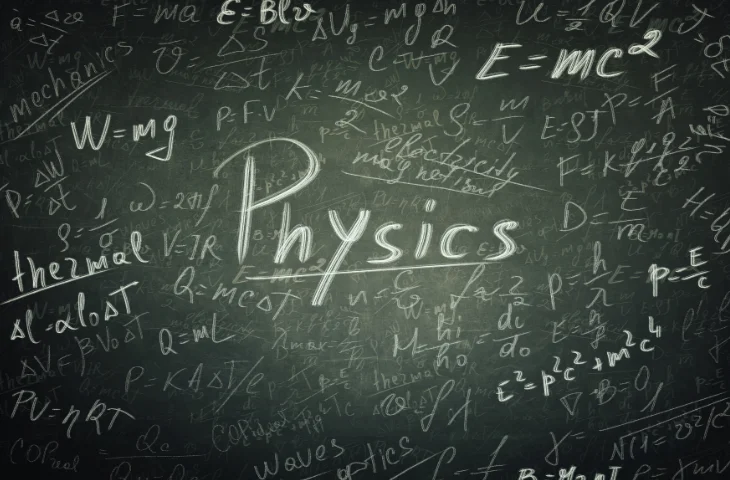Physics is a fundamental subject that explains how the universe works, from motion and energy to forces and electricity. In competitive exams, questions based on basic physics concepts test logical thinking, observation skills, and problem-solving ability. Understanding key terms, formulas, and principles helps candidates solve questions quickly and accurately.
What Is Physics in General Awareness/General Studies?
Physics is the branch of science that deals with matter, energy, force, motion, heat, light, sound, and electricity. In exams, it appears mostly in general awareness or general studies sections as short questions or numerical reasoning problems. To solve physics questions effectively, candidates need:
- Logical reasoning for problem-solving
- Visualization skills for understanding diagrams
- Decoding ability for indirect questions
Why Is Physics Important in Competitive Exams?
Physics is an essential topic in general studies because it appears across SSC, RRB, and PSC exams. Questions are usually conceptual or numerical, requiring clear understanding and speed.
| Exam | No. of Questions | Difficulty |
| SSC CGL / CHSL | 1–2 | Easy |
| RRB NTPC / Group D | 1 | Easy |
| State PSC / Police | 1–2 | Moderate |
Physics General Awareness/General Studies Important Topics
Physics covers multiple areas. Here is a quick mini-glossary to revise key concepts:
| Topics | Details |
| Motion | Study of objects’ movement (speed, velocity, acceleration) |
| Force | Push or pull acting on an object |
| Energy | Capacity to do work (kinetic, potential, mechanical, etc.) |
| Work & Power | Work = Force × Distance, Power = Work / Time |
| Gravity | Attraction between two masses |
| Light | Reflection, refraction, speed in different mediums |
| Electricity & Magnetism | Current, voltage, circuits, magnetic effects |
| Waves & Sound | Frequency, amplitude, types of waves |
Quick Memorizing Tips
Physics concepts can be remembered using short notes and key formulas:
| Concept | Details |
| Newton’s Laws | 1st: Inertia, 2nd: F=ma, 3rd: Action-Reaction |
| Kinetic Energy | KE = ½ mv² |
| Potential Energy | PE = mgh |
| Ohm’s Law | V = IR |
| Power | P = Work / Time or P = VI |
| Wave Speed | v = f × λ |
What Are the Types of Physics Questions in General Awareness/General Studies?
Physics questions in exams can appear in several forms:
- Direct: Straightforward conceptual or formula-based question
- Indirect: Clues provided for calculation or reasoning
- Story-Based: Scenario-based questions requiring logical analysis
- Mixed-Concept: Combine more than one concept, e.g., force and motion
Physics Easy Tips for General Awareness/General Studies
Easy tips to solve physics questions are as follows:
- Memorize formulas rather than solving repeatedly
- Visualize diagrams for optics, circuits, and mechanics
- Use unit analysis to check numerical answers
- Break story-based questions into smaller steps
Physics Tricks for SSC CGL and Other Exams
Easy tricks to solve these types of physics problems are as follows:
- Write known values first for formula-based questions
- Use elimination for multiple-choice questions
- Convert units before solving numericals
- Draw a small diagram for motion, circuits, or optics questions
- Use shortcuts like KE + PE = constant for energy problems
Solved Physics Questions from 2024–25 Exams
- SSC CGL 2024 Tier 1 – Memory-Based
Q: A body of 2 kg moves with 3 m/s. What is its kinetic energy?
A: KE = ½ × 2 × 3² = 9 J
Explanation: Use KE formula ½ mv² - RRB NTPC 2024
Q: Speed of light in water is approximately?
A: 2.25 × 10⁸ m/s
Explanation: v = c / n (n for water = 1.33) - State PSC 2024
Q: Frequency of a wave with wavelength 2 m and speed 10 m/s?
A: f = v / λ = 10 / 2 = 5 Hz
Explanation: Basic wave formula
Common Mistakes to Avoid while Solving Physics
Common mistakes to avoid while solving questions based on physics are as follows:
- Forgetting units always convert to SI units
- Using wrong formula double-check concepts
- Skipping diagrams visualize motion or optics problems
- Misreading numerical values underline key numbers
- Overcomplicating story-based questions solve step by step
FAQs
Energy possessed by a body due to its motion, KE = ½ mv².
Energy possessed by a body due to its position, PE = mgh.
Work = Force × Distance.
Voltage = Current × Resistance, V = IR.
v = frequency × wavelength, v = f × λ.
- Nainital Bank SO Final Result 2026 Out for 74 Posts, Download Link
- SSC JE Vacancy 2025, Check Post-Wise List & Eligibility
- Top RRB ALP MCQ Questions, Download Free PDF
- Delhi Police Vacancy 2025, Check Exam wise revised vacancies
- SSC JHT 2025 Paper 1 Question Papers, Shift-Wise PYPs, Download PDFs
- SSC GD 2025 CBT Question Papers, Shift-Wise PYPs, Download PDFs

Hi, I’m Aditi. I work as a Content Writer at Oliveboard, where I have been simplifying exam-related content for the past 4 years. I create clear and easy-to-understand guides for JAIIB, CAIIB, and UGC exams. My work includes breaking down notifications, admit cards, and exam updates, as well as preparing study plans and subject-wise strategies.
My goal is to support working professionals in managing their exam preparation alongside a full-time job and to help them achieve career growth.
